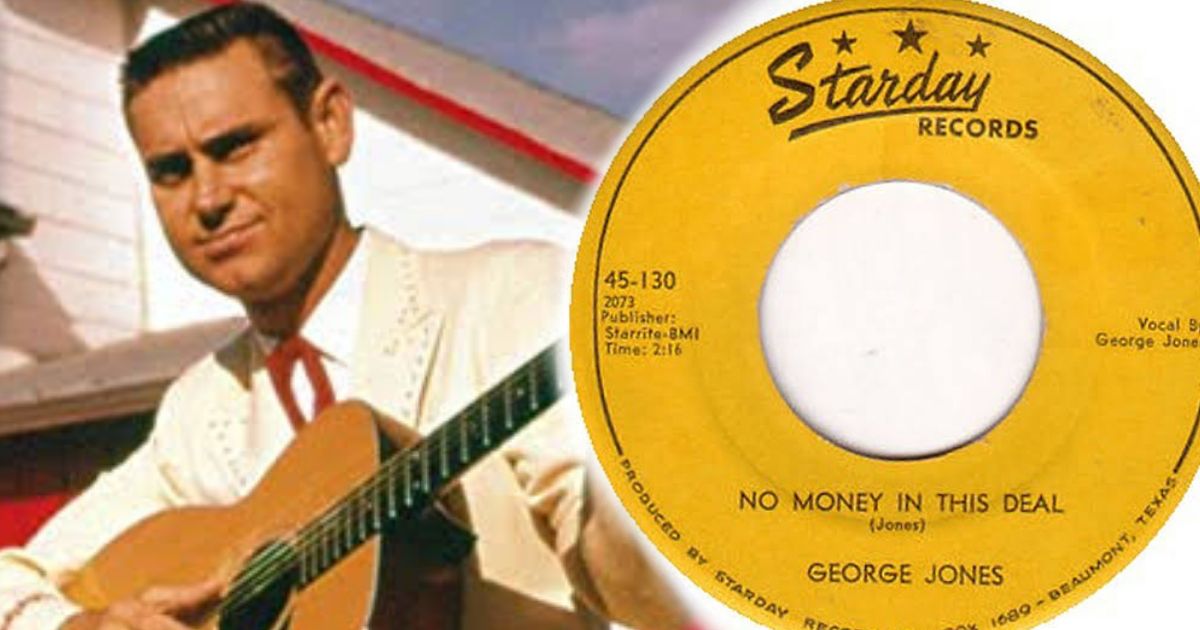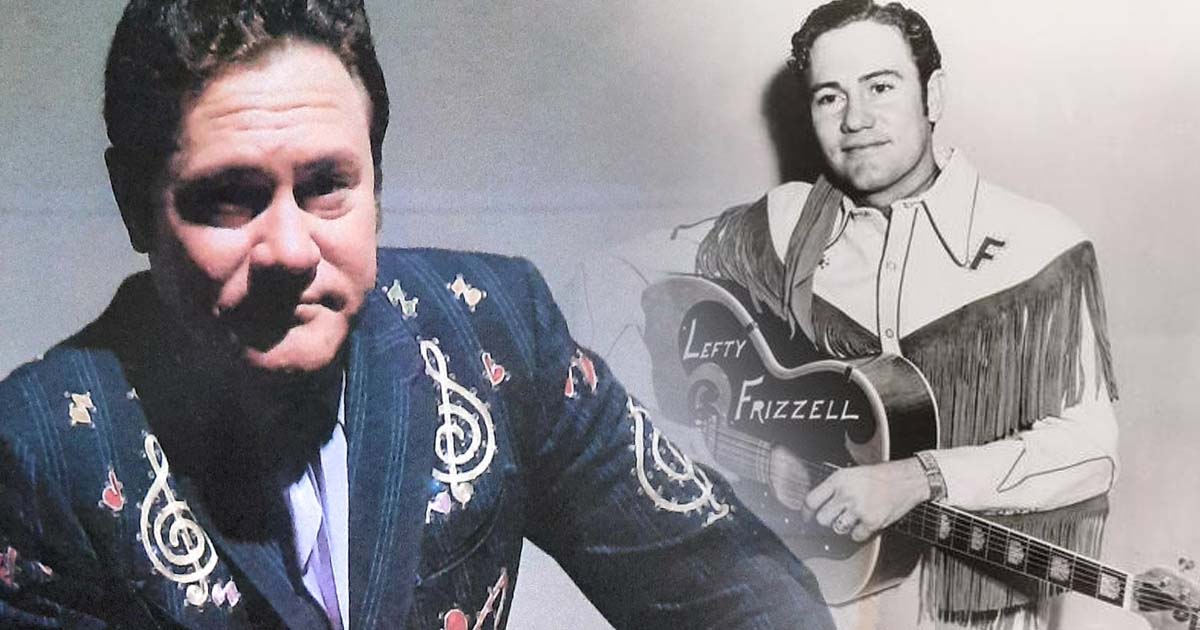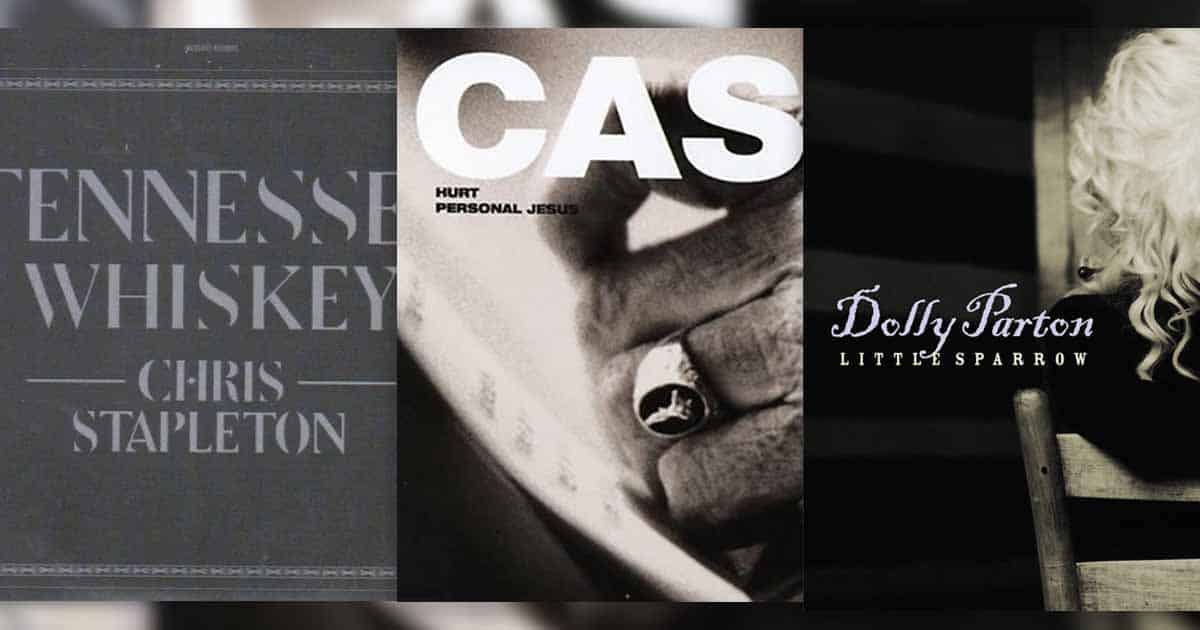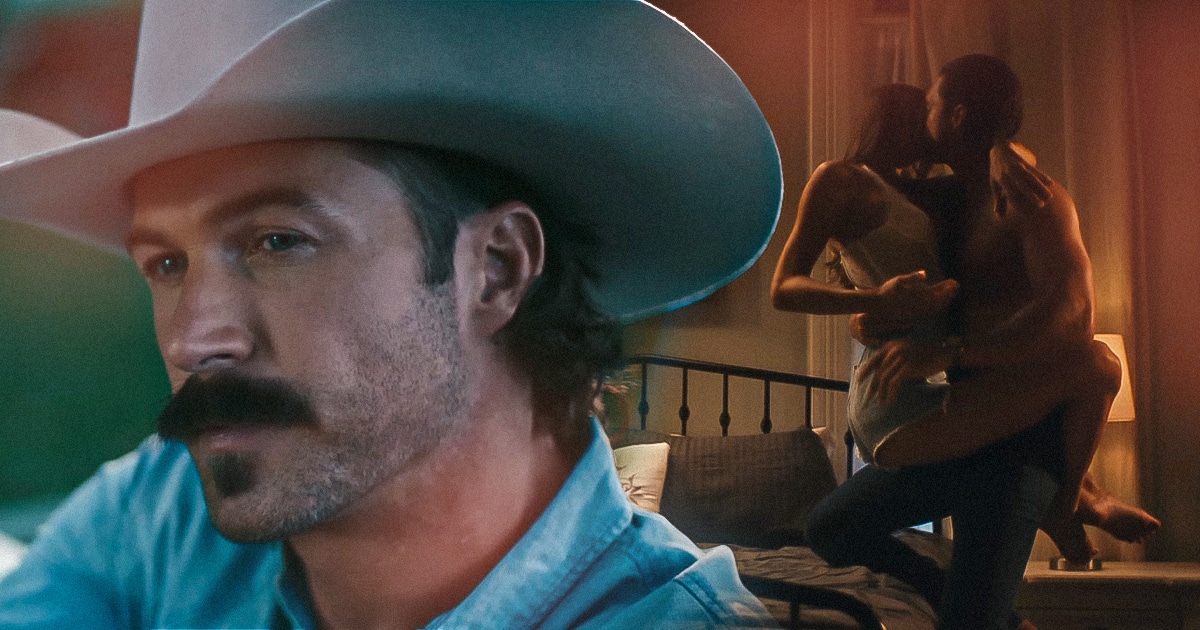First of 900
“No Money In this Deal” was a self-penned honky-tonk tune that George Jones wrote. This was Jones debut single and marked it as the 1st among the 900 records he would produce throughout his career. This was also Jones’ 1st of 5 recordings with The Western Cherokees in Beaumont, Texas. The influence that Lefty Frizzell brought during that time was truly evident, especially with Jones’ vocal styles and the lyrical lines of his songs.
On February 18, 1954, George Jones’ debut single, No Money In This Deal was released.
Jones Career Launch
“No Money In This Deal” was not one of those songs that would immediately make a splash on a nationwide chart. The song was geographically held and was just able to peak as a regional hit. Nonetheless, this definitely helped Jones’ career to launch. Jones recorded the song as a twenty-two-year-old boy for Starday Records. This was also personally special for Jones as he even included his sisters Joyce and Loyce in the song’s lyrics. Also, “No Money In This Deal” was an indication of what listeners and country music fans would expect with the young upcoming star.
Jones admitted that he truly felt nervous when he recorded his first three singles for Starday, to the extent that he had to rely much on his reflexes. Jones added on his statement in 1994, that if the No Money In This Deal was released during the ‘90s, it would just be categorized as a “Bunch of Junk” as the sound of country music was at its full swing into a later innovation of sound.
No Money In This Deal was also included in Jones’ 4th studio album that was released in May 1957.
Successes after “No Money In This Deal”
After experiencing success with his No Money In This Deal, George Jones was able to attain several more hits on the Billboard charts. Jones, however, would often face criticisms about his singing style. He was said to be somebody who’s just imitating his favorite artists like Frizell. Even his capability to write his songs was often overlooked.
During the late ‘50s and mid-’60s, Jones wrote or co-wrote many of the biggest hits during that time such as Mickey Gilley’s “Windows Up Above” and “Seasons of My Heart” which also became a hit for Johnny Cash. Seasons of My Heart” was also recorded by Willie Nelson and Jerry Lee Lewis.
Jones also wrote the song “Just One More Time” which was recorded by Cash, “Life To Go” which gave Stonewall Jackson a top 5 hit in 1959, “You Gotta Be My Baby” and “Don’t Stop the Music” and “Color of the Blues” which prompted Loretta Lyn and Elvis Costello to record their covers.
George Jones had a frequent collaboration with his childhood friend Darrell Edwards.
With the success he attained, Jones has certainly cemented his career as one of the famous figures during the ’50s to ‘60s. Jones also signed with United Artists in 1962. It was also during this time when Jones was able to attain the biggest hit in his career, with the single “She Thinks I Still Care.”
Jones also started to change his singing style, as his voice grew deeper, which eventually became a signature of his career. During his tenure with United Artist, Jones recorded tribute albums for Hank Williams and Bob Wills. He also did a duet with Melba Montgomery that included the hit, “We Must Have Been Out of Our Minds.”
This may come as a surprise to his fans but the songs Jones popularized didn’t peak on top of everything else on the Country charts. In fact, they did not even chart on the top 40 of the Billboard Hot 100. Yet through his being in Nashville, Jones inspired and helped upcoming artists’ to blossom and find inspiration in his music. This negates all the criticisms about George Jones as someone who just copies the singing styles of former Country legends.
While the songs that Jones produced throughout his career may not have been the biggest hit we could have thought, the sphere of his influence went more than just Country. Bob Dylan admired the music Jones produced during the ‘60s. Dylan said that the type of music that was produced in the ‘60s didn’t catch his attention, but after hearing one of the “little” songs of George Jones titled, “Small Time Laboring Man,” it caused a huge impact to Dylan.


















